Die Before You Die | A Dialogue on Death and Rebirth
featured image | Every 17 December, the night of Rumi’s death, thousands of people from all around the world gather to celebrate Seb-i Arus, his ‘Wedding Day’, his reunion with his Beloved, with the Divine. Photo | Hulki Okan Tabak
Hannes Schumacher (HS) | What sparked my enthusiasm for this conversation was the title of a presentation you gave recently at the University of Birmingham: “Die Before You Die”—is that not a proper title also for our dialogue? We had a spontaneous conversation via phone when I found myself surrounded by ferocious mountains in the countryside of Greece with a fragmented internet connection. Drenched in loads of laughter we talked about death and nothingness, about our common interests in Sufism, Heidegger and the Kyoto School, about my Ayahuasca trip in Ecuador, about contemporary permaculture and traditional medicine in Nigeria … What I somewhat missed—haha—is the Ifá conception of death: Could you please explain to me what is death according to the teachings of Ọ̀rúnmìlà and where you see a close connection to the Sufism of Rumi?
Emmanuel Ofuasia (EO) | Thank you Hannes. It is a rare privilege to be able to converse over thousands of miles with a being that you may never meet in person. But for the advancement of scholarship, the words of Carl Jung ring through: “Do not be bothered when you find you find yourself alone. If you do your work conscientiously, unknown friends from far away shall seek you.” You have sought me following my discussion on the view of death by Ọ̀rúnmìlà and Rumi which was a talk delivered to the Birmingham Centre for Philosophy of Religion on September 21, 2022.
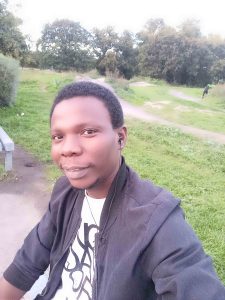 I was intrigued by the fact that among the Abrahamic monotheisms, the norm is to love God and/or his messenger, live the moral life initiated by that love and aim for eternal life. For these two sages that I encounter, it is the topic of death that seems paramount for them.
I was intrigued by the fact that among the Abrahamic monotheisms, the norm is to love God and/or his messenger, live the moral life initiated by that love and aim for eternal life. For these two sages that I encounter, it is the topic of death that seems paramount for them.
Allow me to inform you that the topic of death for these two scholars, really is that there is nothing like death since reality is more than the physical with the capacity to transcend physical extinction. Whereas the one is certain that there is reincarnation, the other is not. However, the common denominator is that persistent thinking about death has the potential to alter our agency as well as how we see the world. In a particular verse of Rumi:
I died as a mineral and became a plant,
I died as a plant and rose to animal,
I died as animal and I was man,
Why should I fear?
When was I less by dying?
Rumi is a Sufi and highly respected Islamic scholar. His idea of reincarnation is tied to the fact that we need not fear death since it is through death that we graduate to a higher consciousness in the chain or hierarchy of being. An important point of departure of which I am unsure is if Rumi endorses that humans can return as humans. It is also doubtful if Sufi Islam endorses such an outlook wholly. I say this because if the Sufi take such a bold move, then they contradict the belief in the Last Day upon which Allah will mete out judgment to transgressors. So, if one has lived more than one life as a human, clearly such is beyond the jurisdiction of Islamic tenets, some of which the Sufi hold on to.
On the other hand, the notion of humans reincarnating and taking up the memory of someone from a previous life is replete among the Yoruba and this is a view also championed by Ọ̀rúnmìlà. I need to however point out that the influence of Euro-Christian civilisation and Arab-Islamic invasion into African indigenous episteme has led most Africans to rebuff their traditional beliefs openly even when they still hold these beliefs dearly.
The discourse on death between Ọ̀rúnmìlà and Rumi however has a common ground: constant meditation on death shapes action or agency and therefore their entire living. And when you consider how these two scholars arrived at this point without ever seeing one another, it becomes lucid that indeed, rationality is universal. Do you agree with this?
HS | Yes, I think I get your point. This contradiction between the doctrine of reincarnation (e.g. in the teaching of Ọ̀rúnmìlà) and the Day of Judgment in orthodox Islam probably has led to many conflicts against and among the Yoruba. Your point—as I understand it—is to argue for a genuine syncretism of Ifá and Islam based on the Sufism of Rumi, or at least to see him as a messenger between conflicting sides. I believe that Sufism is a promising alternative, not only in Nigeria but in many places all around the world. In your presentation you also cited Ibn Arabi:
Generally speaking, each person necessarily sticks to a particular belief concerning his Lord. He always goes back to his Lord through his particular belief and seeks God therein. Such a man positively recognizes the Real only when He manifests himself to him in the form recognized by his belief. But when He manifests himself in other beliefs, he flatly refuses to accept Him and runs away from Him. In so doing, he simply behaves in an improper way towards God, while imagining that he is practicing good manners (adab) towards Him.
(I have to add that this passage is, of course, very male-oriented. The gender of the God and the believer, in my view, belongs to the very “form” that Ibn Arabi talks about.)
EO | There have been no violent confrontations between Ifá priests and Sufi scholars in Nigeria. The difference in their ideology concerning death is just that the Sufi hold on to the pillar of Last Day even when the reality of cases or instances of reincarnation stares them. This is what marks the Yoruba Ifá priests apart.
I should point out to you that there are some Sufi scholars in Nigeria who see Ọ̀rúnmìlà even as a prophet sent by Allah years before Prophet Muhammad. Their argument is that even Ọ̀rúnmìlà could be a muslim and there are Ifá verses that are suggestive of this. This has however created a divide.
On the one hand there are those Muslims who claim that Ọ̀rúnmìlà is a muslim and subordinate to Prophet Muhammad. On the other hand, there are Ifá priests who argue that such cannot be the case.
Now, concerning the male image of God, the passage you quoted is from Ibn Arabi. However, I am one of those who claim that we cannot be certain of God’s sex but it is no more than mere ascription the same way we gave God power, love and knowledge in the superlative senses only to end up with theodicy. In Yoruba linguistics, there is no pronoun for He/She/It that is indicative of sex. What obtains is just a letter “O.” It is the context in which the utterance is made that the sex of the subject/object is known, not without.
This is starkly different from the Abrahamic monotheisms where they claim God cannot be apprehended with the physical eyes but still found God as male.
Ọ̀rúnmìlà

Ọ̀rúnmìlà, also known as Orunmila or Orúla, is a significant deity in the Yoruba religion, which is primarily practiced in West Africa, particularly among the Yoruba people of Nigeria, Benin, and Togo. Ọ̀rúnmìlà is considered one of the most important Orisha (deities) in the Yoruba pantheon and is associated with divination, wisdom, and fate. In Yoruba mythology, Ọ̀rúnmìlà is believed to have played a crucial role in the creation of the world. He is considered one of the “Irunmole,” a group of divine beings who aided in the process of creation. His knowledge of the sacred verses and divination is said to have been bestowed upon him by Olodumare (the Supreme God).
Mowlānā Jalāloddin Balkhi (Rumi)

Rumi, is one of the most celebrated and influential poets, mystics, and spiritual teachers in the history of Islamic literature and Sufism. He was born on September 30, 1207, in Balkh, which is now in modern-day Afghanistan, and he passed away on December 17, 1273, in Konya, Turkey. Rumi’s life and works have left an indelible mark on both Persian and world culture, earning him the title of “Mowlānā,” which means “our master” in Persian. Rumi’s poetry, written in Persian, is renowned for its profound spiritual insights, themes of love, unity, and the divine, as well as its lyrical beauty. His most famous work, the “Mathnawi” (or “Masnavi-ye-Ma’navi”), is often considered one of the greatest pieces of mystical poetry ever composed.
Rumi was a prominent figure in the Sufi tradition, a mystical branch of Islam. His poetry and teachings emphasize the importance of seeking a direct and personal connection with God, often through love and devotion. Rumi’s approach to spirituality transcends religious boundaries and speaks to the universal human longing for divine union.
HS | Beautiful. Do you have in mind a resolution of the contradiction between the doctrines of the Last Day and reincarnation in Nigeria? Rumi is a great authority but he is highly suggestive here. Or do you intend to maintain the contradiction for the sake of a more profound idea of death?
EO | I must begin by saying that for the Yoruba belief system in which Ọ̀rúnmìlà is seen as a religious, spiritual and philosophical authority, there is nothing like the Last Day. Rumi, even though a muslim who entertains the possibility of reincarnation, allowed the belief in the Last Day—one of the cardinals in Islamic faith—to override his Sufi notion of possible reincarnation. My own point however is that I was looking at how much they focused on death as the pathway to guide their agency for an afterlife.
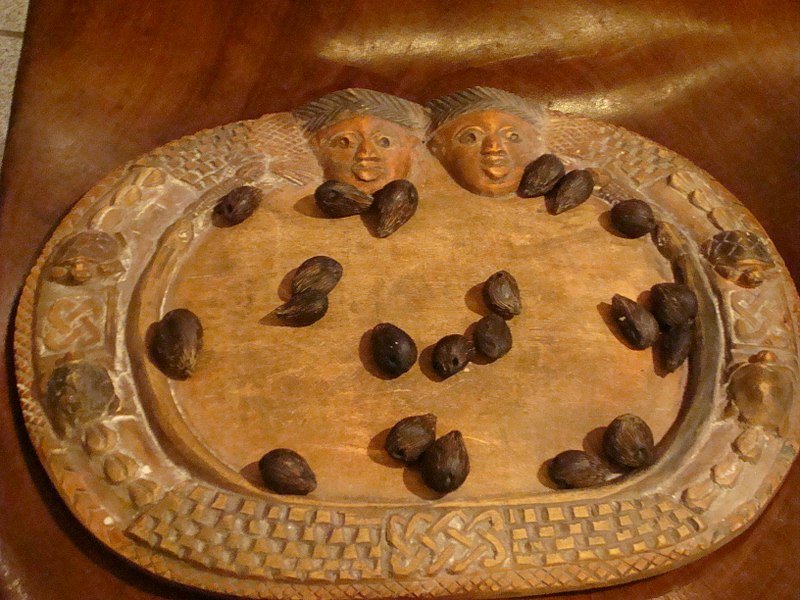
Heidegger sees death as nothing but part and parcel of us. The prize for being alive. That which is within us waiting to engulf us as soon as we gush in the first stream of oxygen. So I agree with you that through death we are able to consider more profoundly, aspects of life which we may not wish to entertain or consider.
HS | Like in Anaximander’s fragment:
Whence things have their origin, there they must also pass away according to necessity; for they pay recompense and penalty for their injustices, according to the ordinance of time.
Ọ̀rúnmìlà’s idea of reincarnation reminded me of this: death is like a leak in the great ark of life, reconnecting us with the furious ocean whence we dwell and strive.
Emmanuel, what I keep on noticing during our conversation is your interest in rationality whereas I am more intrigued by the irrational (perhaps due to our different cultural backgrounds?) By analogy, your idea of death is a continuous contemplation of our human finitude, whereas to me death is a mystical experience. ‘To die before you die,’ in my view, is not only to contemplate about one’s death but to experience it in all its terrifying depth, but also once again to be reborn into a new light, a wholly different vision of the self and of the world.
In Sufism, this idea is addressed in the concept and practice of fanāʾ which is commonly translated as the annihilation of the self. Mansur Al-Hallaj (858-922 CE)—a more controversial figure in Islam—was executed for uttering the words “I am the Truth” (ana’l-Haq), an utterance which his opponents understand as a blasphemous identification with God. Al-Hallaj’s supporters, on the other hand, see his life and work as the realization of fanā: by killing his individual self, his limited personality, he ultimately unified with the unlimited self of God. In another passage Rumi writes:
‘I am the Truth’ on the lips of Mansur [Al-Hallaj] was the light
‘I am God’ on the lips of Pharaoh was a lie.
When the Shaykh [Al-Hallaj] said ‘I am God’ and carried it through,
he throttled all the blind.
When a man’s ‘I’ is negated from existence, then what remains?
Consider O denier.’
What is at stake here, is neither death per se, nor its contemplation, but the experience of ego-death during one’s lifetime.
EO | First, allow me to point out that we are both rational in our dealings. We are employing logic and arguments to reinforce our claims. This means no one’s position is more superior or rational than the other. Second, allow me to stress once again that I am also deeply motivated to undertake traditional African religion from the perspective of process theology, of which we had both briefly talked about over the phone. Now, here is the catch: experience is central to process metaphysics, the foundation of process theology. All things experience and it is this experience that informs how we codify and organise ourselves as entities like no other in the actual world. On this note, the claim to experience death is used loosely by you and truth is only the living can consider death and its mystical accidents or ingredients on behalf of the dead. So, to “die before you die” as used by me in the ideas of Ọ̀rúnmìlà and Rumi is that the consistent REFLECTION not EXPERIENCE on death shapes one’s relation to self, others and the world. It need not be a wholly new or different reflection or perspective. It merely needs to command reflection on the agent that the reality of death, which CAN NEVER BE EXPERIENCED can inform a better view of life.
I see that your use of words and thoughts on the subject matter is based on the concept of fanāʾ and Mansur’s. This is like moving beyond the scope of the present discourse since it centres on Rumi. However, if what is at stake is ego-death as you claim, then at what point does one, personally claim to have arrived at this state of ego-death? Is it posterity that confers such on an individual? Did Rumi and Mansur attain ego-death according to themselves or is it posterity that confers these on them? These distinctions are important for the present discourse. Death is not a thing to be experienced. However, contemplation and meditations on the subject can make one take life more simply. These are the overriding messages from Ọ̀rúnmìlà and Rumi. The notion of experience of ego-death in one’s lifetime as you conclude is another subject matter on its own. This would command some justifications not from Sufism but Buddhism.
HS | Since I participated in an Ayahuasca ceremony in Ecuador, I no longer share these concerns. Ayahuasca in the regions of the Amazon is considered as a sacred medicine that helps us reconnect with nature and experience Being in itself, which can be very terrifying.
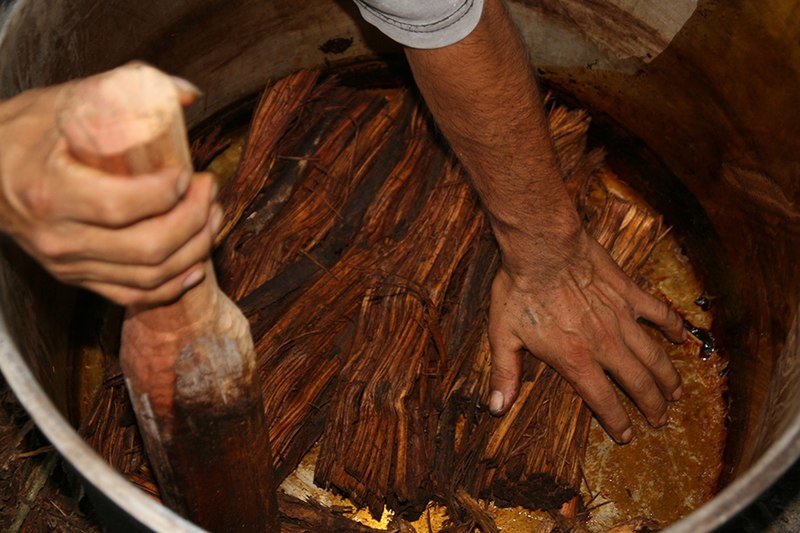
After drinking from the potion, I slowly drifted on the floor until the first “visuals” would overtake my consciousness. These highly synesthetic impressions are so sensitive that the soft clicking of a shaman’s lips while speaking, for example, would lead me into wholly different regions such as the unfolding of history, or the food I ate last week, or me reliving the birth of my child both from the mother’s and the child’s perspective. Turning my body to the left would raise my problematic with Trinitarian elements in the spiritual spheres of Latin America, turning to the right would spark my fear and simultaneous excitement to rise higher into burning light …
Inspired by the cosmic poetry of my fellow participant Gabriel, I tried out different languages and my German mother tongue led me into the concentration camps of Auschwitz. Me myself a prisoner I was tortured with medieval torture instruments, with my arms and legs spanning over the entire ceremonial house, when my idea arose that the two shamans—before so nice and calm—intended to kill me. Second, when Gabriel began to move around aggressively while I sank into the ground, I felt that the ceremony had gone terribly out of control and we should try to reach out for some medical help. However, the rest of the night turned out rather calm and I had deep insights into my expanding consciousness and its mutual entanglement with the entire world, until warm sunlight would bring me back to a new life, spiraling in nature’s orchestra.
True, I did not literally die, I was terribly afraid to die, and perhaps this is all. And yet, when I recall that night at the ceremony, I cannot help but remember that I died: it is a tremendous paradox within the flow of my life which turned out irreducible to any other explanation. Of course, you may argue that all this is highly subjective, after all only a matter of psychology, indeed, I have my doubts in it as well. But I claim that there are such altered states of consciousness in which we may experience our own death, at least from a subjective perspective.
EO | What you witnessed cannot be categorized as death experience. Existentially, if you died, you would not be here having this conversation over thousands of miles with me and never ever meeting me. It is a religious experience and like William James once warned us, there are many regions of consciousness that exist aside from the conventional. On page 300-1 of his 2002 edition of his Varieties of Religious Experience, James said:
Our waking consciousness, whilst all about it, parted from it by the filmiest of screens, there lie potential forms of consciousness entirely different. We may go through life without suspecting their existence, but apply the requisite stimulus, and at a touch they are there in all their completeness, different types of mentality which probably somewhere have their field of application and adaptation. No account of the universe in its totality can be final which leaves these other forms of consciousness quite disregarded.
I need to tell you that I agree with James on this and I cannot deny that you had an experience that is not in waking consciousness. What you experience is also why Sextus Empiricus had related that we are only aware of our own mental states:
For each person is aware of his own private pathos [affections], but whether this pathos occurs in him and his neighbor from a white object neither can he himself tell, since he is not submitting to the pathos of his neighbour … And since no pathos is common to us all, it is hasty to declare that what appears to me of a certain kind appears of this same kind to my neighbor as well.
Yes, I cannot enter into your pathos and you cannot enter mine. On a rational and deeper level of reflection, you may have witnessed another dimension to consciousness. Your description does not come close to near death experiences or out of body experiences. You did not die Hannes. You only experienced reality from another dimension. What I can confidently say is that the experience that you had that night currently lacks vocabulary and parapsychology needs to be given more opportunity to express itself for cases as yours. You had a “conscious experience” beyond the normal, conventional waking consciousness.
I am a big fan of personal experience and this is one of the reasons why I chose to major in Metaphysics—if I cannot change society or the world, at least I should be able to study ways through which I can position myself to cope with whatever the society or the world throws at me. The problem we have is that there is a strict censorship pertaining to the kind of knowledge that can be published and taken as “scientific.” This is where the problem lies. On this account, some experiences, very insightful and relevant, are usually left out of scope. This is why I have the deep conviction that as humans we are not operating with our mental faculties at the optimum level. In fact, we barely use it.
So on this note, I challenge you to see yourself as studying yourself. See your experience(s) as ways that yourself keeps unfolding you to seeing yourself.
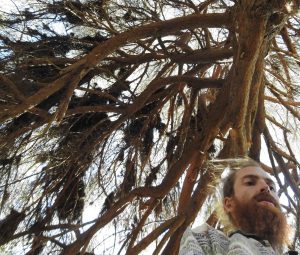 HS | I find it interesting how you conflate the discipline of metaphysics with personal experience: while metaphysics investigates the nature of the absolute, i.e. a knowledge which ranks higher than objective facts, personal experience can be terribly subjective: you seem to draw a circle here which from my point of view is very stimulating. By investigating ourselves, we learn a lot about the world around us, and most importantly about the cultural biases we inherit. If we are able to erase these cultural biases not only theoretically but also in practice, the study of the self becomes the study of the absolute but from an inside perspective.
HS | I find it interesting how you conflate the discipline of metaphysics with personal experience: while metaphysics investigates the nature of the absolute, i.e. a knowledge which ranks higher than objective facts, personal experience can be terribly subjective: you seem to draw a circle here which from my point of view is very stimulating. By investigating ourselves, we learn a lot about the world around us, and most importantly about the cultural biases we inherit. If we are able to erase these cultural biases not only theoretically but also in practice, the study of the self becomes the study of the absolute but from an inside perspective.
This is another thing I learned from Ayahuasca: I am nothing, I am everything. But still I am this vulnerable, limited existence with its memories and dreams.
I grew up in a cultureless society in southern Germany where a merely formal atheism is paired with a hostile Calvinistic moral. In return, I broke with these cultural biases and went to live in various locations in the Global South in search of different perspectives which I found and adapted to some degree. But we also have to see how such movements to the opposite extreme are still triggered by the original biases, and ask how they can be relativized as well. May I ask how are your experiences in a very different cultural environment?
EO | Allow me to relay that in the midst of my philosophical-spiritual journey, I have adapted some aspects of Darwinism, especially the topic on survival of the fittest. It is not the wisest, strongest, meanest, that survives. It is the one with the ability to adapt to the changes in the environment. I have brought this conviction to my living and interaction practices to almost everywhere I find myself.
I have a background in Christianity which I had broken from since I find no point reading a Bible that teaches me that God created light before the sun or that there is Heaven or Hell when reincarnation is more real. I moved to investigate traditional African religion and I realise that they have nearly all the answers to my puzzles rather than the Abrahamic monotheisms. Nevertheless, I keep a good relationship with Muslims and Christians, but I do not let them convince me into their faith much as I do not bother them about mine.
An important point I understand is that no one is making it out of this place alive. Live and let live! My ontology, my spirituality works for me but I see people around me who seek to tap into another person’s spirituality through what they call religion. I cannot change them. My ideas are enough for me and I adapt them to wherever I find myself. Of course, whoever comes to me can only be made to think and reflect on their place in this doomed existence of ours. I cannot foist or even pass my beliefs and modus operandi to them. Spirituality is like an electric pole passing through a street. Anyone can tap into it from their plots. Why would I want anyone to “tap from my own tapping” (i.e. religion) when they can experience and manifest their god-like features?


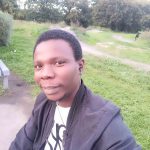
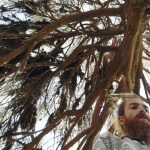

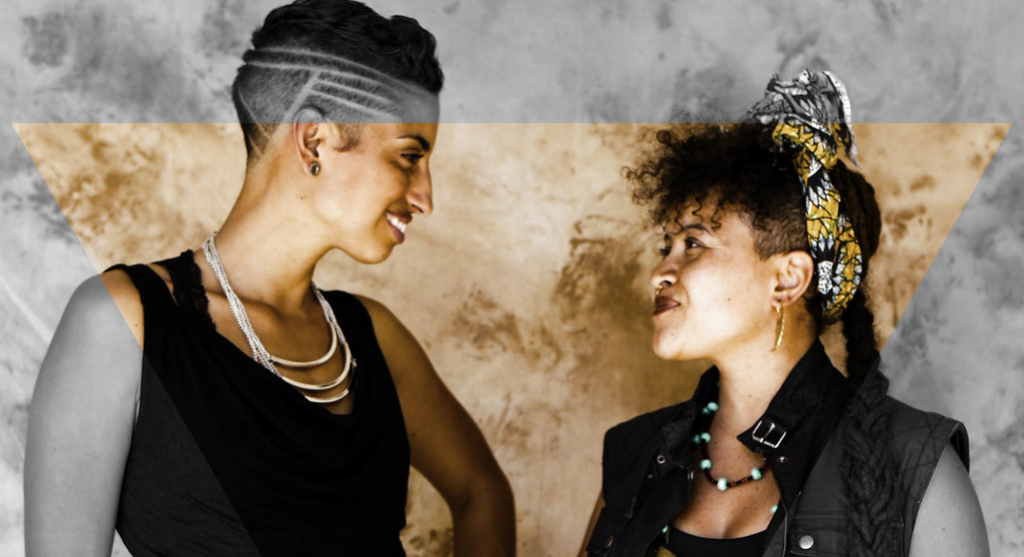
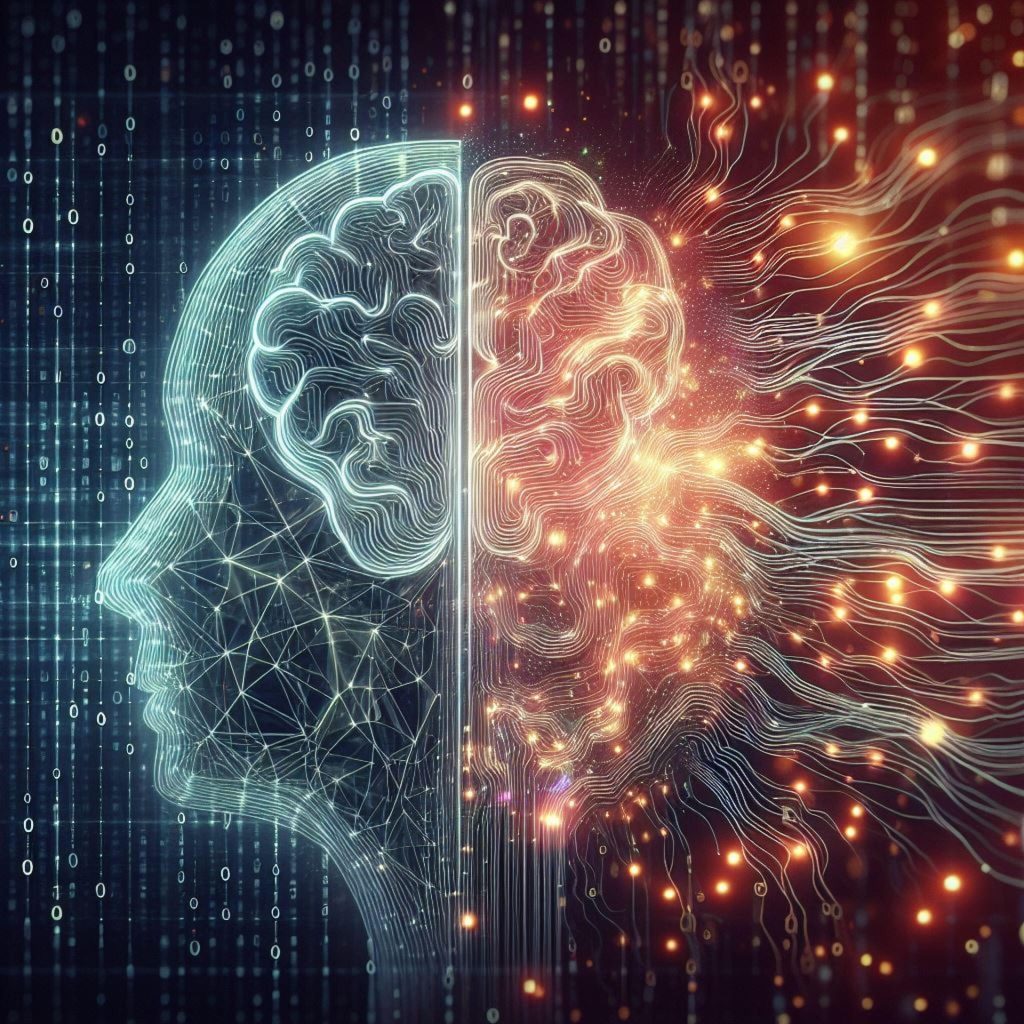
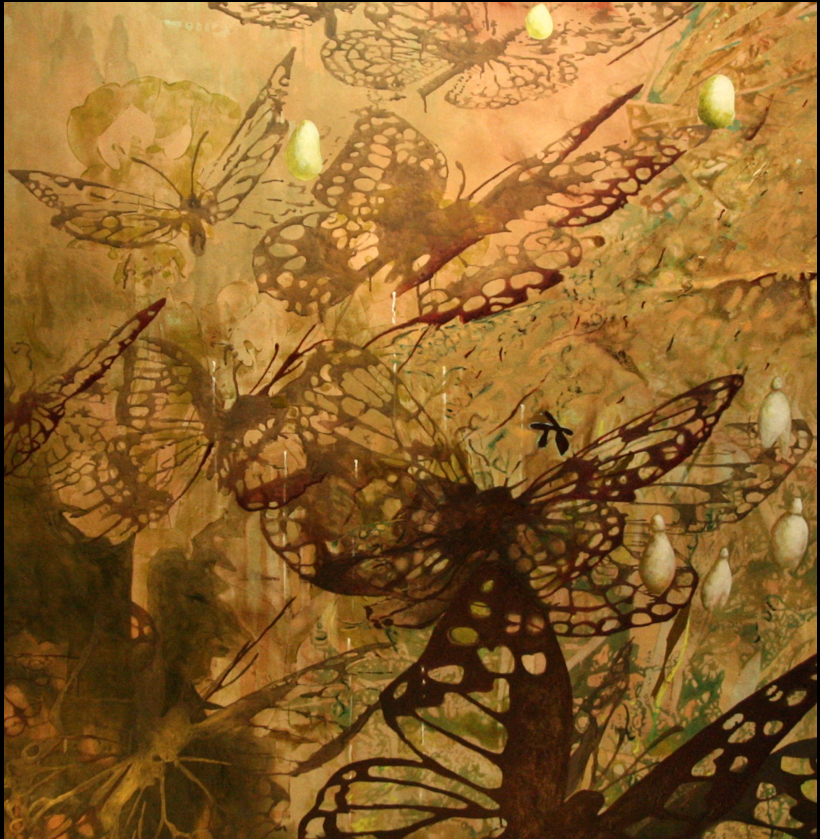
This is intriguing. I will surely let my students consider this conversation as part of my lectures on Existentialism. Kudos!